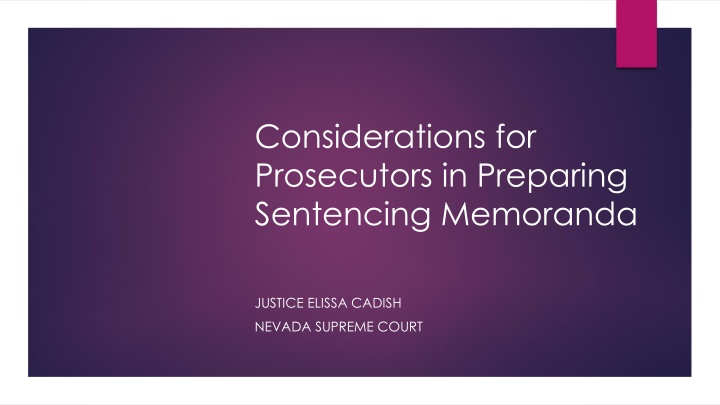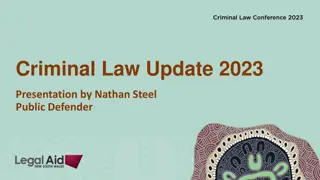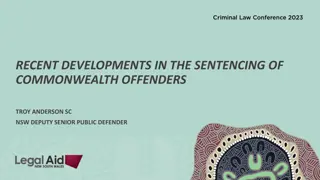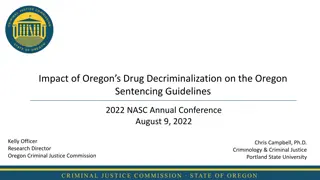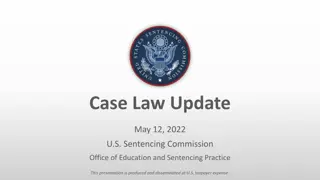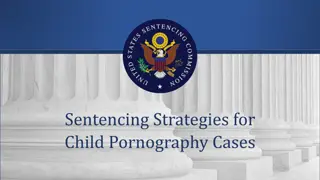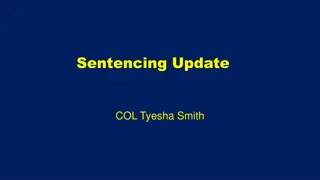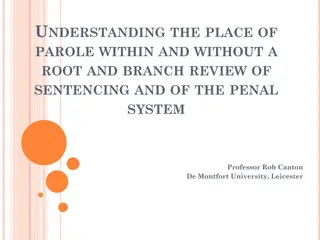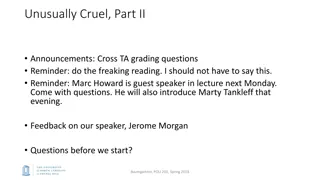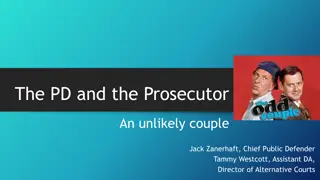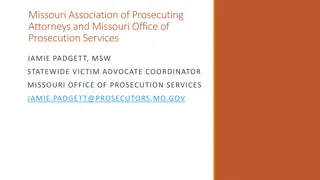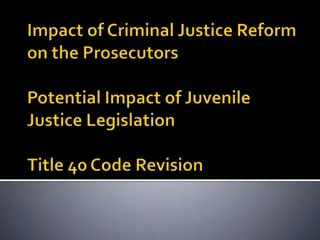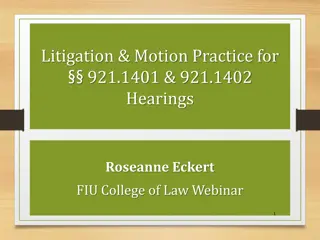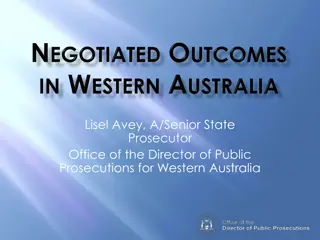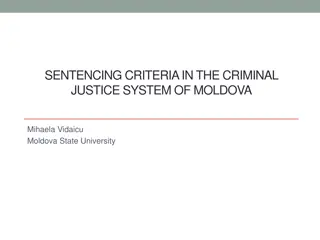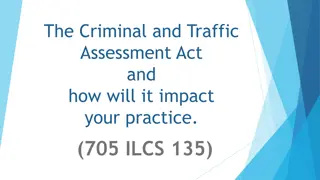Key Considerations for Prosecutors in Sentencing Procedures
Understanding sentencing memoranda, unique statutes, and the responsibilities related to mentally ill defendants, prosecutors must factor in crime details, criminal history, victim impact, mitigating factors, and additional penalties. The court's discretion in imposing deadly weapon enhancements and habitual treatment under specific statutes requires thorough consideration of factors to ensure justice and fairness in sentencing procedures.
Download Presentation

Please find below an Image/Link to download the presentation.
The content on the website is provided AS IS for your information and personal use only. It may not be sold, licensed, or shared on other websites without obtaining consent from the author.If you encounter any issues during the download, it is possible that the publisher has removed the file from their server.
You are allowed to download the files provided on this website for personal or commercial use, subject to the condition that they are used lawfully. All files are the property of their respective owners.
The content on the website is provided AS IS for your information and personal use only. It may not be sold, licensed, or shared on other websites without obtaining consent from the author.
E N D
Presentation Transcript
Considerations for Prosecutors in Preparing Sentencing Memoranda JUSTICE ELISSA CADISH NEVADA SUPREME COURT
UNIQUE OR UNUSUAL SENTENCING STATUTES AT ISSUE FACTORS TO BE CONSIDERED RE SENTENCING RIGHT TO ARGUE FACTS AND CIRCUMSTANCES FOR SENTENCE VICTIM IMPACT OTHER CONSIDERATIONS When would you do this?
NRS 176.057 Regarding sentencing a defendant who pleaded or was found guilty but mentally ill The court must find that the defendant is mentally ill at the time of sentencing The court must include in the sentence an order that the defendant, during a period of confinement or probation, be given such treatment as is medically indicated for the defendant s mental illness NDOC is required to separate such a person from the general population until they no longer require acute mental health care and then continue to receive such treatment as is medically indicated Guilty but mentally ill
In determining the length of the additional penalty imposed, the court shall consider the following information: (a) The facts and circumstances of the crime; (b) The criminal history of the person; (c) The impact of the crime on any victim; (d) Any mitigating factors presented by the person; and (e) Any other relevant information. The court shall state on the record that it has considered the information described in paragraphs (a) to (e), inclusive, in determining the length of the additional penalty imposed. Deadly weapon enhancement under NRS 193.165(1) It cannot exceed the sentence for the underlying crime per NRS 193.165(2) Court must make findings on each factor for each crime being enhanced per Mendoza- Lobos v. State (2009)
Habitual treatment under NRS 207.010 Provide JOC s so everybody has seen them Confirm notice was properly and timely filed Court has discretion to dismiss count of habitual criminality, and may consider criminal history, mitigation evidence, victim impact statements and the like per O Neill v. State (2007) Court may also dismiss if the prior offenses are stale or trivial or where adjudication of habitual criminality would not serve the purposes of the statute or the interests of justice per LaChance v. State (2014) If defense may argue against habitual treatment, make argument about why none of these factors apply and that habitual treatment is just and proper
Aggravating and Mitigating Circumstances Prior Facts of the offense Criminal history Reasons for plea deal prison/parole/probation adjustment Mental health challenges Anticipate defense arguments Substance abuse
Marsys Law and NRS 176.015 regarding victims right to be heard at sentencing Aparicio v. State (2021) victim does not include everyone impacted by crime Victim Impact Information Marsy s Law directly and proximately harmed by commission of offense NRS 176.015 injured or killed as direct result of commission of crime, specified relatives of such a person If nonvictim, and there is objection, consider only if statement is relevant and reliable per NRS 176.015(6)
Other considerations Recommended conditions if probation ordered Concurrent or consecutive sentences Credit for time served
